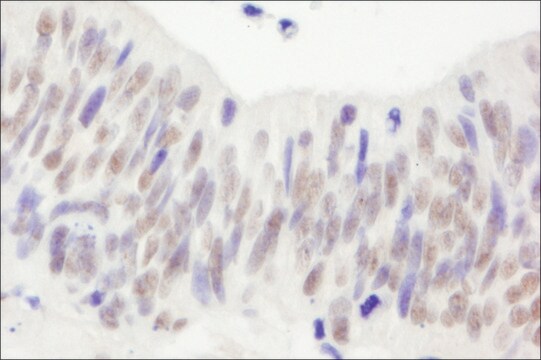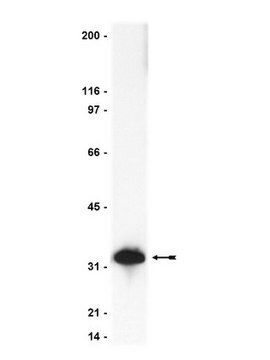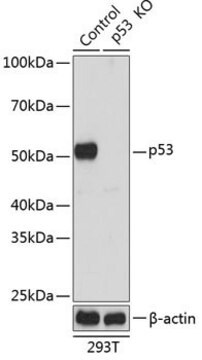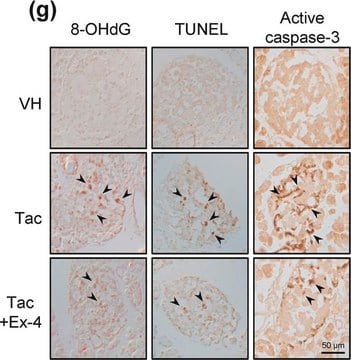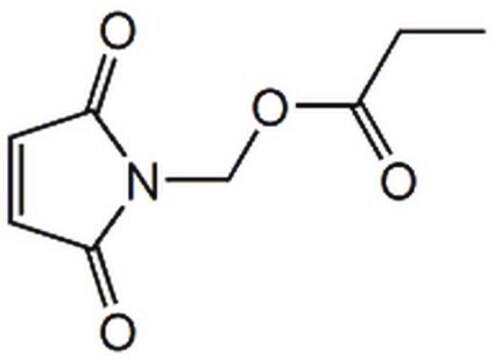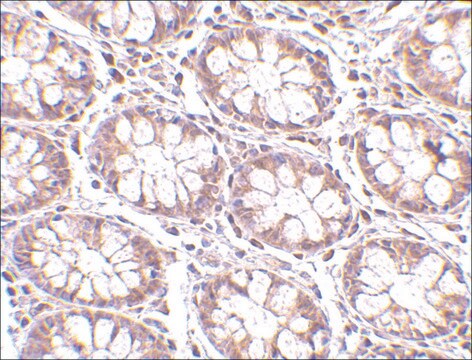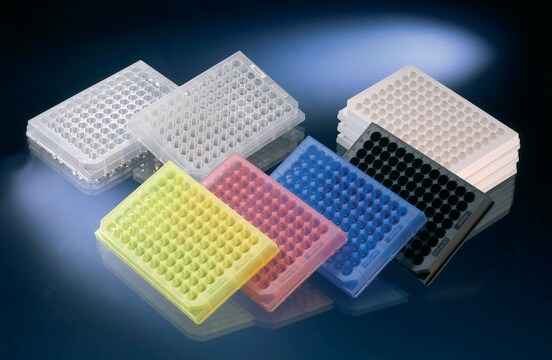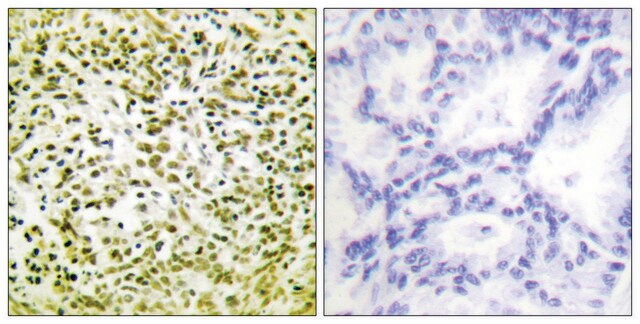PLA0072
Rabbit anti-p53 Antibody, Affinity Purified
Sinonimo/i:
BCC7, LFS1, Li-Fraumeni syndrome, TRP53, Tumor suppressor p53, antigen NY-CO-13, mutant tumor protein 53, p53, p53 tumor suppressor, phosphoprotein p53, transformation-related protein 53, tumor protein 53, tumor supressor p53
About This Item
Prodotti consigliati
Origine biologica
rabbit
Livello qualitativo
Forma dell’anticorpo
affinity purified immunoglobulin
Tipo di anticorpo
primary antibodies
Reattività contro le specie
human
tecniche
ChIP: 4-30 μg
flow cytometry: 1.5 μg
immunohistochemistry: 1:1,000- 1:5,000
immunoprecipitation (IP): 2-5 μg/mg
western blot: 1:2,000-1:10,000
Numero d’accesso
P04637
Condizioni di spedizione
wet ice
Temperatura di conservazione
2-8°C
modifica post-traduzionali bersaglio
unmodified
Informazioni sul gene
rabbit ... p53(7157)
Descrizione generale
Immunogeno
Azioni biochim/fisiol
Stato fisico
Altre note
Esclusione di responsabilità
Non trovi il prodotto giusto?
Prova il nostro Motore di ricerca dei prodotti.
Codice della classe di stoccaggio
12 - Non Combustible Liquids
Classe di pericolosità dell'acqua (WGK)
nwg
Punto d’infiammabilità (°F)
Not applicable
Punto d’infiammabilità (°C)
Not applicable
Certificati d'analisi (COA)
Cerca il Certificati d'analisi (COA) digitando il numero di lotto/batch corrispondente. I numeri di lotto o di batch sono stampati sull'etichetta dei prodotti dopo la parola ‘Lotto’ o ‘Batch’.
Possiedi già questo prodotto?
I documenti relativi ai prodotti acquistati recentemente sono disponibili nell’Archivio dei documenti.
Il team dei nostri ricercatori vanta grande esperienza in tutte le aree della ricerca quali Life Science, scienza dei materiali, sintesi chimica, cromatografia, discipline analitiche, ecc..
Contatta l'Assistenza Tecnica.
